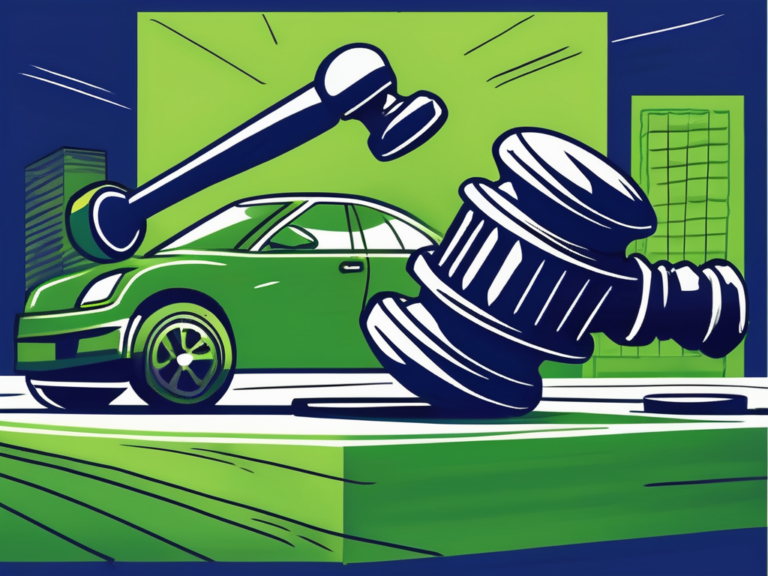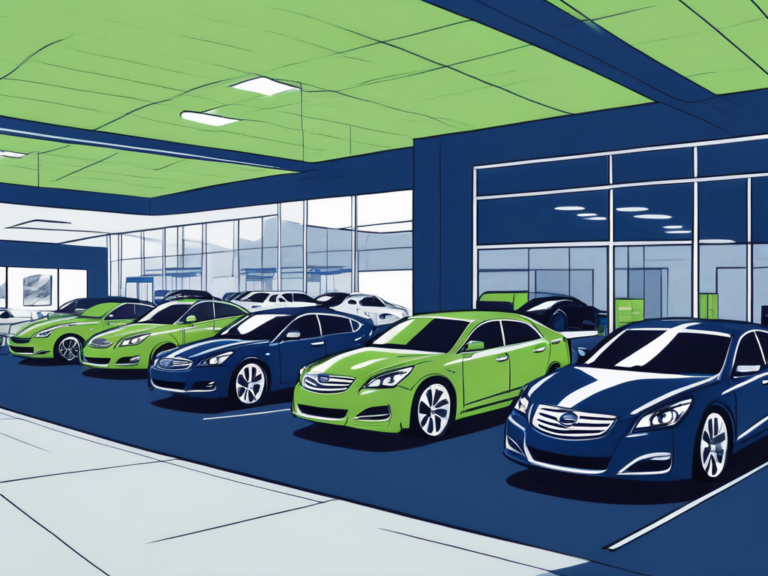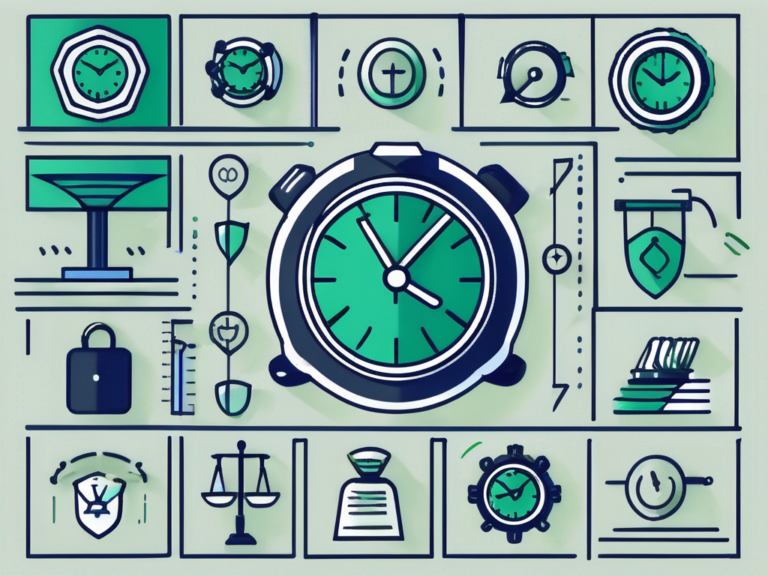Talk to Sales: (401) 200-6026

In today’s competitive automotive industry, customer experience has become a crucial factor in gaining a competitive edge. With customers becoming more discerning and demanding, it is essential for automotive businesses to prioritize and invest in enhancing the customer experience throughout their journey. In this comprehensive guide, we will explore the importance of customer experience in the automotive sector and provide strategies to achieve excellence. Let’s delve into the world of customer experience in the automotive industry.
Understanding the Importance of Customer Experience in the Automotive Industry
Defining Customer Experience
Customer experience encompasses every interaction a customer has with your automotive business, from initial contact to after-sales support. It is the sum of their perceptions, emotions, and satisfaction levels throughout their journey with your brand. A positive customer experience creates loyalty, advocacy, and repeat business, while a negative experience can drive customers away and tarnish your brand image.
When a customer walks into your dealership, their experience begins with the first impression they have of your showroom. The layout, cleanliness, and overall ambiance of the space can significantly impact their initial perception of your brand. A well-designed showroom with comfortable seating areas, interactive displays, and knowledgeable staff can create a positive atmosphere that makes customers feel welcome and valued.
As the customer moves through the buying process, every interaction with your sales team is an opportunity to enhance their experience. Sales representatives should be trained to listen actively, understand the customer’s needs and preferences, and provide relevant information and guidance. Building a relationship based on trust and transparency is crucial in ensuring a positive customer experience.
Once the customer has made a purchase, the after-sales support becomes essential. Timely and efficient service appointments, clear communication, and personalized attention can make a significant difference in how customers perceive your brand. Going the extra mile to address any concerns or issues promptly shows that you value their satisfaction and are committed to their long-term happiness.
Sell cars on the lot faster with AutoRaptor
Know if we’re the right fit within 10 minutes
Why Customer Experience Matters in the Automotive Sector
In the automotive sector, customer experience plays a vital role in influencing purchase decisions. With numerous options available, customers are looking beyond the vehicle itself; they seek an exceptional experience that goes beyond the product they are buying. A positive customer experience not only builds trust and loyalty but also increases the chances of upselling, cross-selling, and referrals. On the other hand, a poor customer experience can damage your reputation and lead to the loss of potential customers.
Imagine a customer who is in the market for a new car. They have done their research, compared different models, and narrowed down their choices. However, when they visit a dealership and encounter unhelpful or pushy salespeople, their experience is tainted. They may feel pressured into making a decision, or worse, they may feel ignored and undervalued. As a result, they may choose to take their business elsewhere, even if the product itself is of high quality.
On the other hand, consider a customer who visits a dealership and is greeted warmly by a knowledgeable salesperson. The salesperson takes the time to understand their needs and recommends a vehicle that suits their lifestyle and preferences. The customer is given the opportunity to test drive the car, ask questions, and make an informed decision. This positive experience not only increases the likelihood of a sale but also creates a lasting impression that can lead to repeat business and referrals.
Furthermore, in today’s digital age, customer experiences are shared and amplified through online reviews and social media. A satisfied customer is more likely to leave positive feedback and recommend your brand to their friends and followers. Conversely, a dissatisfied customer can quickly spread negative sentiments, damaging your reputation and potentially deterring others from considering your brand.
Therefore, investing in customer experience is not just about providing excellent service; it is about building a strong and positive brand image that resonates with your target audience. By prioritizing customer satisfaction at every touchpoint, you can differentiate your automotive business from competitors and create a loyal customer base that will drive your success in the long run.
Key Elements of an Excellent Automotive Customer Experience
Personalization in Customer Service
Personalization is the key to stand out in the automotive industry. By understanding and acknowledging customers’ individual needs and preferences, you can create tailored experiences that make them feel valued and understood. Personalization can range from personalized recommendations based on their previous purchases to addressing them by their names.
Seamless Digital Experience
In an increasingly digital world, it is imperative for automotive businesses to provide a seamless online experience. This includes an intuitive website, easy-to-navigate mobile applications, and responsive customer support. By investing in user-friendly digital platforms, you can offer convenience and accessibility, enabling customers to research, purchase, and seek support effortlessly.
After-Sales Support and Services
Customer experience extends beyond the point of sale. To ensure customer satisfaction and loyalty, automotive businesses must provide exemplary after-sales support and services. Quick response times, efficient warranty processes, and timely maintenance reminders are crucial elements of superior after-sales customer experience.
Sell cars on the lot faster with AutoRaptor
Know if we’re the right fit within 10 minutes
Strategies to Enhance Customer Experience in the Automotive Industry
Implementing Technology for Improved Customer Interaction
Embracing technology is paramount in improving customer interactions. By leveraging customer relationship management systems and data analytics, you can gain valuable insights into customers’ preferences, behaviors, and pain points. These insights can help you develop targeted marketing campaigns, personalized offers, and proactive customer support.
Training Staff for Superior Customer Service
Your staff members are the face of your automotive business. Investing in their training and development is essential to provide exceptional customer service. Equip your staff with the necessary knowledge and skills to handle customer inquiries, resolve complaints effectively, and deliver personalized experiences. Empathy, active listening, and product expertise should be the pillars of their customer service approach.
Creating a Customer-Centric Culture
To truly enhance customer experience, a customer-centric culture must be embedded within your automotive business. It starts with leadership setting the example and trickles down to every employee. Foster a culture where every employee understands the significance of customer experience, takes ownership of their role in delivering it, and constantly strives for improvement. Celebrate success stories and encourage feedback so that all departments work cohesively to provide a seamless customer experience.
Measuring Customer Experience in the Automotive Industry
Key Performance Indicators for Customer Experience
Measuring customer experience is essential to gauge your progress and identify areas for improvement. Key Performance Indicators (KPIs) provide measurable insights into your customer experience efforts. Metrics such as Net Promoter Score (NPS), Customer Satisfaction (CSAT) scores, and Customer Effort Score (CES) help you understand customer sentiment and track changes over time.
Utilizing Customer Feedback
Listening to your customers is a valuable source of information for enhancing their experience. Actively collect and analyze customer feedback through surveys, online reviews, and social media platforms. Gain insights into their pain points, expectations, and opportunities for improvement. By addressing their feedback and making necessary improvements, you demonstrate that their opinions matter and that you value their experiences.
The Role of Data Analysis in Customer Experience
Data analysis plays a crucial role in understanding customer behavior and preferences. By analyzing customer data, you can identify trends, anticipate their needs, and personalize their experiences accordingly. Utilize tools and technologies to collect, store, and analyze data, enabling you to make data-driven decisions that improve the overall customer experience.
In Conclusion
Enhancing customer experience in the automotive industry is not a one-time endeavor. It requires continuous efforts, investment, and a customer-centric mindset at all levels of your organization. By understanding the importance of customer experience, focusing on key elements, implementing effective strategies, and continuously measuring and improving, you can create a competitive advantage that sets your automotive business apart. Prioritizing customer experience is not just a business strategy – it is a commitment to building lasting relationships and exceeding customer expectations in the vibrant automotive industry.
Want to improve your sales and move cars off the lot faster? Book a test drive with AutoRaptor to see how our simple dealership CRM software can help you close more deals effectively.
Subscribe to our Newsletter
Resources to help your dealership convert more leads into sales, retain more customers, and market inventory smarter, straight to your inbox every Sunday.




